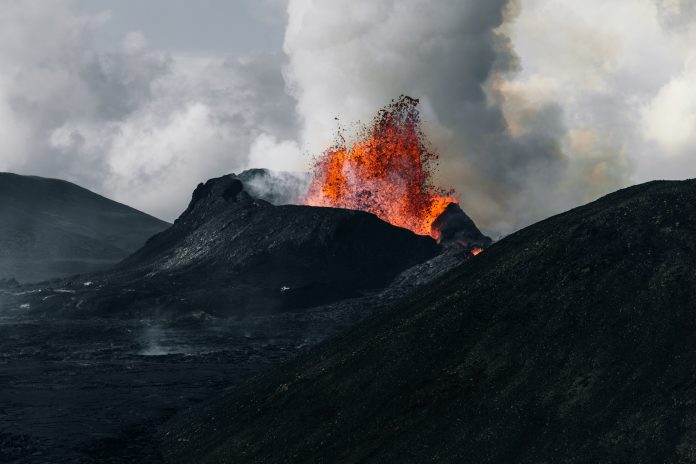Scientists are looking deep into Earth’s geological history to understand the impact of global warming, uncovering pivotal insights from catastrophic volcanic eruptions that reshaped our planet’s climate millions of years ago
Researchers from ETH Zurich, collaborating with international teams from the University of Arizona, University of Leeds, CNRS Toulouse, and the Swiss Federal Institute for Forest Snow and Landscape Research (WSL), have studied geological data to grasp how vegetation and climate interacted during major climatic upheavals.
Their findings, published in a recent study, show the similarities between ancient volcanic events and today’s human-induced climate crisis.
Siberian Traps impact on the current climate crisis
One such cataclysmic event, the Siberian Traps eruption around 252 million years ago, emitted 40,000 gigatons of carbon into the atmosphere over 200,000 years.
This influx of carbon triggered temperature spikes of 5 to 10°C, leading to what scientists describe as Earth’s most severe mass extinction event on record, the Permian-Triassic extinction.
“The recovery of vegetation from the Siberian Traps event took several millions of years and during this time Earth’s carbon-climate regulation system would have been weak and inefficient resulting in long-term climate warming,” explains Julian Rogger, lead author of the study.
During this lengthy recovery period, Earth’s carbon-climate regulation system faltered, resulting in prolonged climate instability and warming.
Human-induced climate crisis
The research shows how swiftly emitted carbon must be reabsorbed into Earth’s interior, through processes like silicate mineral weathering, to mitigate climate impacts. Equally crucial is vegetation’s role in this delicate balance. Plants not only absorb carbon dioxide but also influence climate through their ability to adapt or migrate in response to rising temperatures.
Historical data indicates that when vegetation struggles to adapt, climate stability suffers. This lag in adaptation can prolong climate crises for millennia, as seen in the aftermath of ancient volcanic events.
“Our study demonstrates the role of a functioning of vegetation to recover from abrupt climatic changes. We are currently releasing greenhouse gases at a faster rate than any previous volcanic event.” comments Loïc Pellissier.
As global temperatures continue to rise, the study urges reevaluating current environmental practices and policies. The lessons from Earth’s geological past underscore the urgent need for proactive measures to protect and restore global ecosystems.
By learning from Earth’s ancient climatic upheavals, scientists hope to chart a sustainable path forward, one where humanity respects the delicate balance of nature while mitigating the impacts of global warming.











